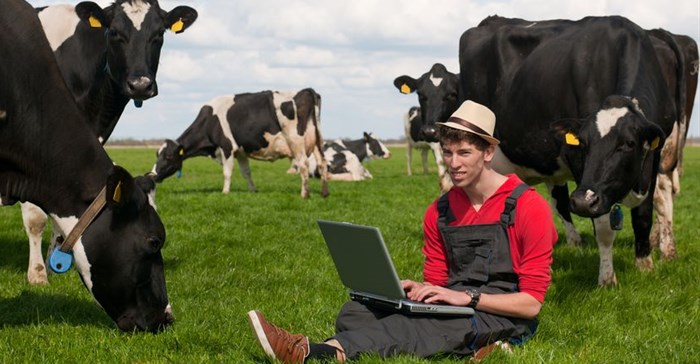






The GCARD Global Event will host a Social Media Boot Camp to train a group of 75 social reporters who have never worked together before so they can report live from the event. This is to ensure that they will be well equipped with the tools and skills to integrate thousands of people who cannot be at the conference into the onsite discussions.
According to Peter Casier, the social media coordinator for the GCARD conference, the boot camp will increase the capacity of people working in agriculture, agricultural research and sustainable development. “The tools we teach them at the boot camp will be used at the conference and also in their daily professional life. They will have the skills to advocate for their causes, to involve people in their projects and to increase their organisation’s productivity. We teach them how to use the social media tools professionally, and strategically,” explains Casier.
Out of the 75 participants at GCARD3 there will be one group comprising of young social reporters, selected by the Young Professionals for Agricultural Development (YPARD). These participants have been preselected based on their eagerness to use social media but also on how well they understand what this conference is all about. The second group are the finalists of the Youth Agri-preneurs Project.
“We did a one month long online selection process where young agri-preneurs from all over the world could submit projects as candidates for seed funding. The six finalists are participating in the boot camp as part of their initial training and induction program. For young agri-preneurs, social media is a critical tool,” comments Casier.
The third and largest group are people who work for GFAR partner organisations, or any other organisation working in agriculture, agricultural research and sustainable development. The participants come from Africa, Middle East, Asia, South and Central America and Europe.
“Nowadays, social media tools such as webcasting, Twitter, live blogging and vlogging are used to report in real time from an event or even broadcast live to a wider worldwide audience. For a typical event of 1,000 onsite participants, we might reach over 100,000 people, who might be anywhere in the world. We call this social reporting which is the use of social media tools in live reporting from an event,” says Casier.
The process also involves the online public into the onsite discussions, using the same set of social media tools. “Imagine you have a panel of 10 world experts sitting on a stage. What they say is broadcast live via webcasting which anyone can see via YouTube and whoever is watching, from wherever they are watching – from Timbuktu to Vladivostok, can ask questions to that panel.
The only thing you need is an internet connection. That is the power that social media tools give us these days: the power to be inclusive - and not restrict a conference to an elite who can afford to come – and to have fully inclusive discussions. That is why we organise a social media boot camp, to teach the conference participants and key communications people to work as an onsite live reporting social media team,” he adds.
Casier further explains that one of the challenges associated with the boot camp is that there is only three days to prepare the boot campers which will be hard work for the participants.
The boot camp is organized by GFAR (the Global Forum for Agricultural Research), and is coordinated by a senior communications expert, who worked for over 20 years in international development, and for 10 years in social media. The participants will learn all tools and skills to use social media professionally. They will work 18-20 hours per day to report live from the conference, using the tools they have been trained on.
“We developed the boot camp concept initially in Addis Ababa (Ethiopia) five years ago”. An event of about 200 participants. We had 10 social reporters and we did a pre-event briefing of two hours to get ourselves organised. From there it grew. We expanded the training component, expanded our amount of tools we use, and also opened up these trainings to anyone who works in our professional area of agriculture, agricultural research or sustainable development.
Gone are the days of 10 social reporters, who wrote maybe 15 blog posts, and reached 5,000 people on Twitter. Here at the GCARD3 conference, we have 75 people in our boot camp. Through our social media tools, and with our communications team, we reached already over 120,000 people in six weeks,” concludes Casier.